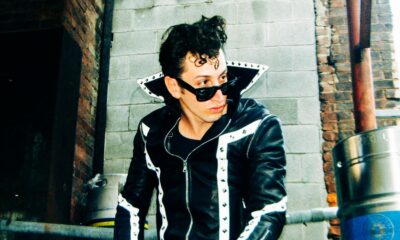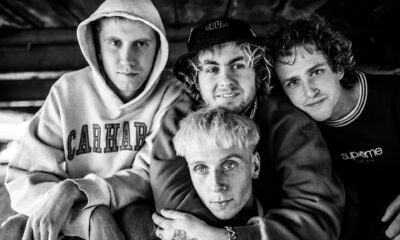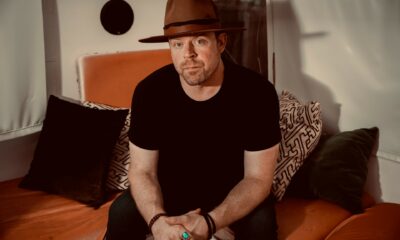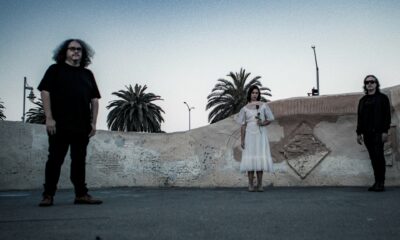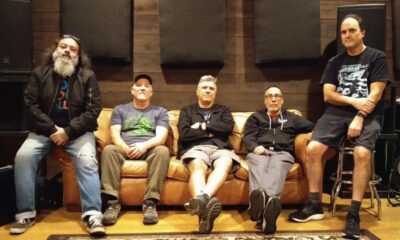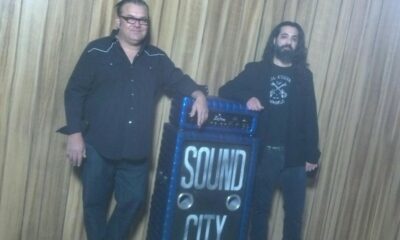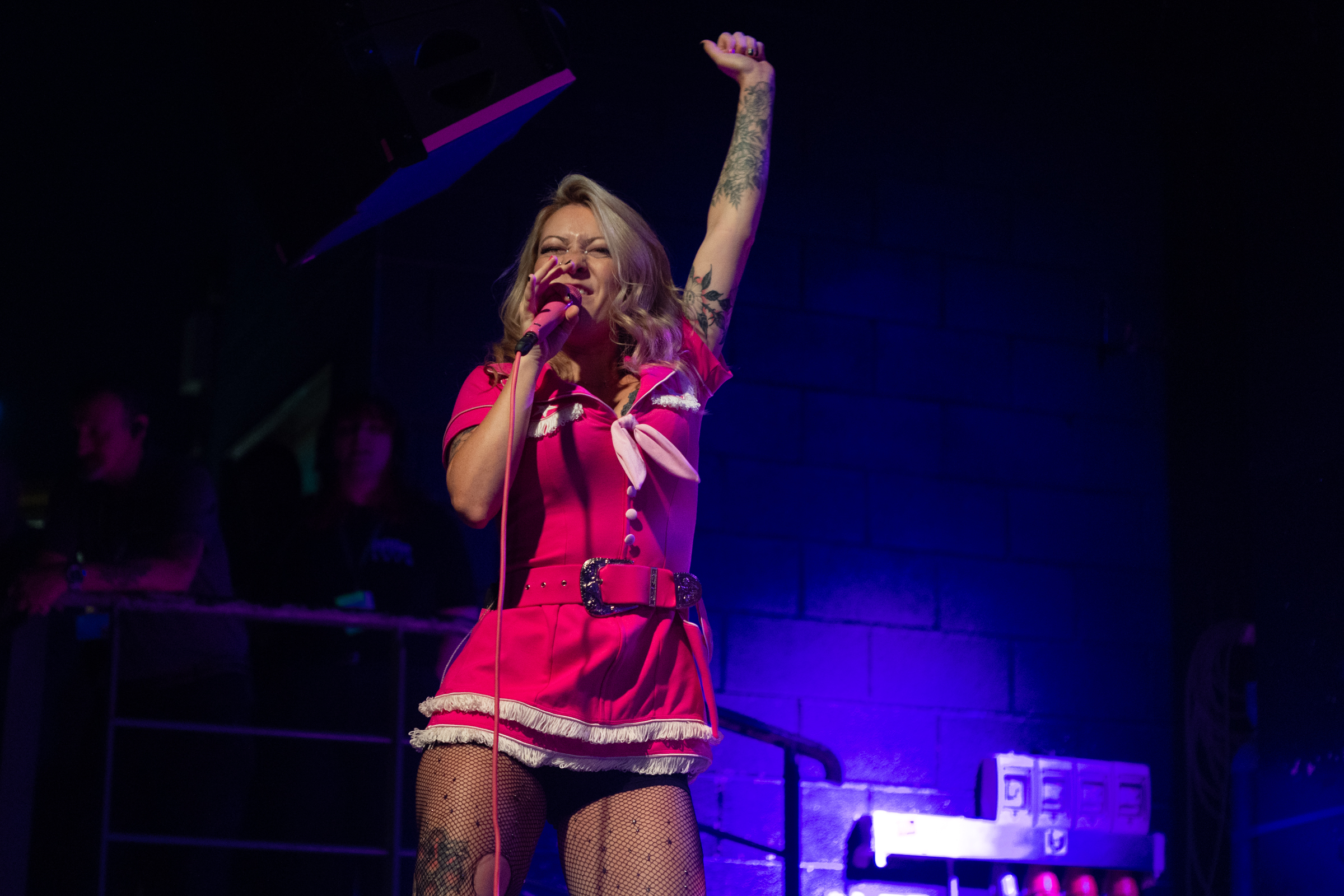Alternative/Rock
Alex Henry Foster Teases His Solo Album ‘Windows In The Sky’ with “The Hunter” [Song Premiere]
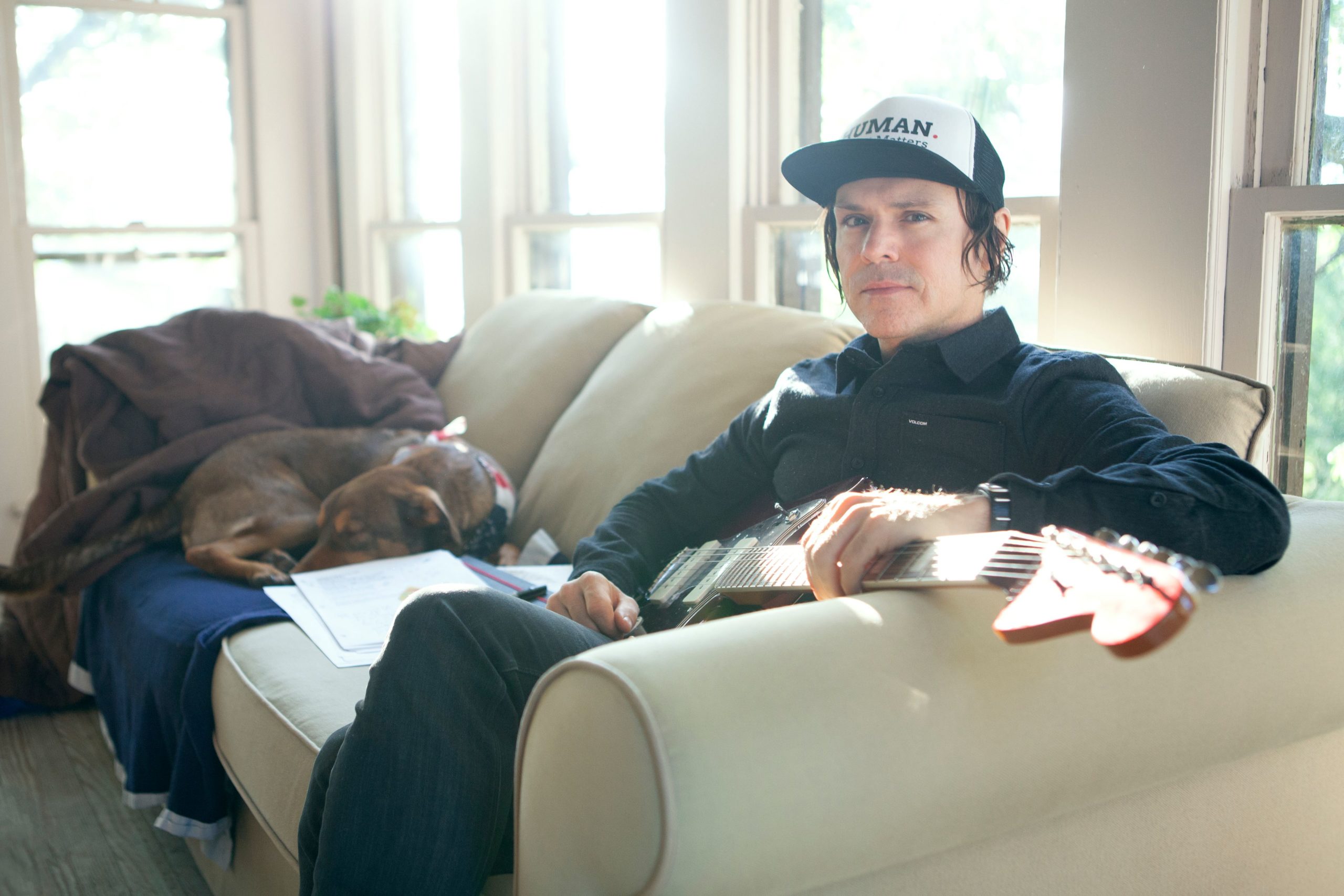
It took some time, but Alex Henry Foster has completed that debut solo project he had been meaning to get to for, well, years now. Foster, of course, whom you may know from Your Favorite Enemies, the longtime running Canadian alternative rock group, finally scratched that solo itch with his album Windows In The Sky, released in November of 2018. For a sample, you can check out our debut of one of the key songs, “The Hunter,” an accurate example of the mood and the musical elements you’ll find on the record.
In writing the album, Foster took a global approach, creating its eight tracks between Tangier, Morocco, and Montreal, Quebec. Intensely personal, the record was created at a difficult time for the artist, soon after his estranged father passed away from cancer. In turn, Windows In The Sky was inspired by these experiences as you’ll discover in Foster’s mood and words; he takes a close look at the nature of faithfulness, sorrow, and solitude all while troubled by grief and confusion, searching for a more hopeful direction. Foster has referred to his first solo outing as contemplative and reflective, and the truest of examinations into one’s character and spirituality.
Musically speaking, Windows In The Sky was recorded in familiar territory for Foster, the recording studio that Your Favorite Enemies created out of a former Catholic church. Speaking of Your Favorite Enemies, although this is a record very much coming from the mind and heart of Foster, he did invite his bandmates to contribute to completing some of the musical arrangements as he finished up the production process.
Stylistically, the album is primarily centred around Foster’s delicate vocals and introspective poetry, while the music draws from Radiohead, Swans, Mogwai, and Nick Cave to create a mix of art rock, shoegaze, noise rock, psychedelic, and krautrock. For years, the artist had been looking for a method of channelling deep personal emotions within the musical dynamic of Your Favorite Enemies so he could in a way hide from truly standing up to them. It was only when his father passed that he was ready to tear that veil of security off and try something new.
We recently spoke to Foster at length about “The Hunter” and why he felt now was the right time for his first foray into the solo artist world.
I particularly enjoyed the musical versatility of your new track “The Hunter.” I also liked how it catches you off guard with its mood and tempo changes throughout the song. What was the process behind writing this song?
Alex Foster: “The process was truly instinctive, like most of the record. I have the great privilege of having my own studio and rehearsal facility. So, contrary to some songs that have been written while I lived in Tangier, ‘The Hunter’ was the resultant of the purest of all writing sessions, which is a live one.
It all started with a droning idea that culminated into different motions of sonic layers, dynamic streams, and free structural movements, no click track to pocket us on the grid… Only a musical flow without any form of ‘let’s make something special’ ambitions, be it personal or collective. We simply lived and got carried by what I call the ‘now,’ without any self-imposition on others nor any creative over-thinking. Again, only pure freedom. We were fortunate enough to capture it on tape…
It’s only weeks later, when looking for another writing session, that I accidentally listened back to that musical moment. I immediately knew I had a text that perfectly incarnated the tone and nature of the song. It’s only once back in the Highlands of Virginia, where I live and where I wrote the lyrics to what would become ‘The Hunter,’ that I recorded the vocals, in a totally different technical set up from the one in which the music had been lived and recorded. This time, it was recorded with minimal gear placed in the tiniest room of my house.
In order to go with the musical nature of the song, I simply set the mic and let go to the moment. We figured I would do a ghost track to feel the song while Ben was mixing the little he had to work with. But after going through the whole song, I decided to keep it as it was; pure and instinctive. Ben was a little concerned with the technicals and the mixing aftermath, especially that at one point, when the lyrical flow started to be a little more intense, one of my dogs jumped on me wondering what was going on with me! Seeing I was not reacting, he then jumped on Ben right after, who, having his back turned to me while engineering the improvised session, jumped in a stupor! My dog barking and Ben’s surprised scream are the only edits made on the track…!
I added the voice of my collaborator, Japanese artist Momoka Tobari after I convinced Ben that one track was perfect, to his great dismay at the time. Momoka went right in and offered me the sonic texture I was looking for. Her voice tone provided a deeper perspective to the song, especially that it involved translated parts of ‘The Hunter’ in Japanese. Her fragile presence gave a counterpoint to the story itself. Again, one track was all the song needed.
The mixing of the track became more of a challenge than the actual writing and recording, especially that I wanted the song to breathe on its own and was looking to avoid the usual pro-tool cut and fix, re-arranged and replaced. This, in my opinion, would have ruined the organic nature of the song…”
I also enjoyed the heavy use of distortion, not only in the music but also in the vocals. Whose idea was it to record and produce the song in this way?
“‘The Hunter’ bloomed from a collective moment resulting in the idea of everybody’s inner struggle while defining what is the result of our illusionary reflection and the honest desire we have to emancipate ourselves from the notion of having to move on versus the peace of letting go from self-preservation. That was the only starting point. The rest was totally organic.
For the vocal production, I knew what I wanted to hear based on the lyrical content, but I didn’t want to overthink the process. The song needed to keep its pure approach and the temptation for over-production in such a flowing song could ruin it all, sterilizing and standardizing everything that made the song what it is. It’s easy to become ambitious when you have the sensation that you have touched something special. You need to constantly remind yourself that what makes it special remains the fact that it’s the result of a genuine moment.
So I decided to listen to the song and lightly emphasized what I believed needed to be slightly highlighted rather than force myself to the song for the sole purpose of feeling like it’s been produced.”
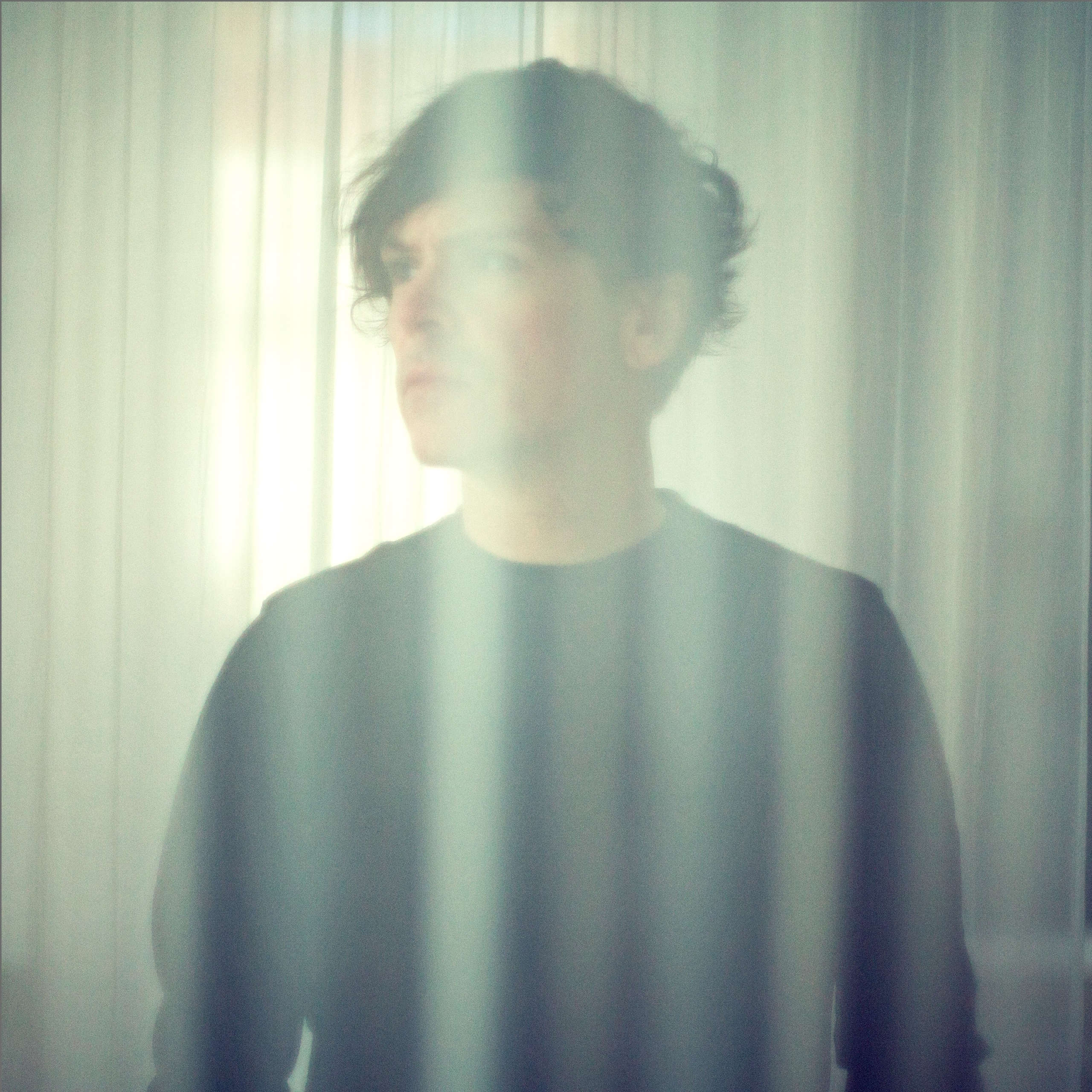
Artwork for ‘Windows In The Sky’ by Alex Henry Foster
Take us further into the writing process behind “The Hunter.” How did you write this one and what did it take for you to complete it and be happy with the results?
“For me, everything starts with an image. The image gives birth to a title. That title, in turn, describes what I see or feel. Most of the lyrics on Windows in the Sky have been written when I lived in the dazzling city of Tangier, located between the sea and the desert. This paradox greatly influenced the way I approached the themes appearing on the album.
‘The Hunter’ appeared in a totally different context. I wrote the song from the little writing place I have, graced with large windows, in my house located in the Highlands of Virginia. The house is located atop a mountain, in the middle of luxuriant green forest, which trees had faded into their autumnal colours by the moment I wrote the lyrics. The hunters had invaded that usually peaceful environment and everyone suddenly became silent witnesses to every gun fired, echoing the finest reality of lives being ripped in the middle of a place that is usually a refuge.
That was the first layer beneath the song meaning; life seasons turning from a place to safely lay down into an environment where we can’t find any places to hide in peace no more. It’s also a reflection on the implacable nature of time, of our attempt to slow down the fading essence of our lives. It also represents our fierce desire to deny the reality of our existence that keeps on losing the race to what we once believed eternal with every day passing by. It’s about regrets and their acceptance. It’s about what makes us who we are and redefining everything if only for a split second before it’s too late to even dream about something else.
The meaning could sound pompous and overthought, but the different layers make it free from anything that could so easily get in the way of the personal emotions we all experience between moving on and letting go to the yet intimate and communal nature of the track. The happiness, if there’s one as a creator, comes the moment you decide to get out of the way of the song and let it be. So in that matter, I’m happy I didn’t succumb to the ever-growing temptation of adding, changing, fixing, re-modeling from the song’s initial conception to its release.”
Is “The Hunter” representative of what we’ll hear on your full-length debut solo record Windows In The Sky?
“It’s representative in terms of being its own moment. Just like with every song, you can piece the record out, but it’s been written and recorded in the very same order as the tracklisting is. Even though it wasn’t envisioned as a conceptual album, it’s a journey.”
Would you say it shares similarities with other songs on the album?
“The song’s organic structure and immersive tone surely are, yet in a way that is completely different from the other songs on the album.”
You’ve enjoyed quite an amount of success with your band Your Favorite Enemies, now nearing fifteen years into your existence. Why now have you decided to do a solo record?
“Because it wasn’t planned whatsoever. I left for Tangier in the illusionary attempt to write what would have been a new Your Favorite Enemies record. That was the perfect excuse to feed the denial of just how desperately in need of time off I was, a denial of just how burned out I was. It was supposed to be a two-month writing residence for me. It turned into two years of introspection and emotional detox. This is what eventually became an album. I don’t think I would have had the courage to even consider the idea of doing something on my own, especially not after more than a decade hiding in the midst of a collective.
I had become way too comfortable in the dark to even desire to stand into any soft gleam of light, to be honest. It’s only once I decided to clean the blur that had become my existence and look at myself for the mess I was that I slowly resurfaced. I can’t say I’m not struggling and that I’m no longer afraid of simply being, but I’ve stopped denying my nature, which allows me to fight one battle at the time.”
What made you feel comfortable enough to take the plunge into the solo artist world?
“Being uncomfortable and being honest about it. For me, there’s no solo, band, ensemble, or else. There are words and sounds, songs and communion. The rest is for others to define and label. That’s the freedom I now cultivate by creating in the margin of what’s expected from me and what may be designed as successful or not. At least, that’s how I feel about it today…”
-

 Music5 days ago
Music5 days agoTake That (w/ Olly Murs) Kick Off Four-Night Leeds Stint with Hit-Laden Spectacular [Photos]
-

 Alternative/Rock6 days ago
Alternative/Rock6 days agoThe V13 Fix #010 w/ High on Fire, NOFX, My Dying Bride and more
-

 Hardcore/Punk2 weeks ago
Hardcore/Punk2 weeks agoHastings Beat Punks Kid Kapichi Vent Their Frustrations at Leeds Beckett University [Photos]
-

 Alternative/Rock2 weeks ago
Alternative/Rock2 weeks agoA Rejuvenated Dream State are ‘Still Dreaming’ as They Bounce Into Manchester YES [Photos]
-

 Features5 days ago
Features5 days agoTour Diary: Gen & The Degenerates Party Their Way Across America
-

 Culture1 week ago
Culture1 week agoDan Carter & George Miller Chat Foodinati Live, Heavy Metal Charities and Pre-Gig Meals
-

 Music1 week ago
Music1 week agoReclusive Producer Stumbleine Premieres Beat-Driven New Single “Cinderhaze”
-

 Alternative/Rock1 week ago
Alternative/Rock1 week agoThree Lefts and a Right Premiere Their Guitar-Driven Single “Lovulator”

